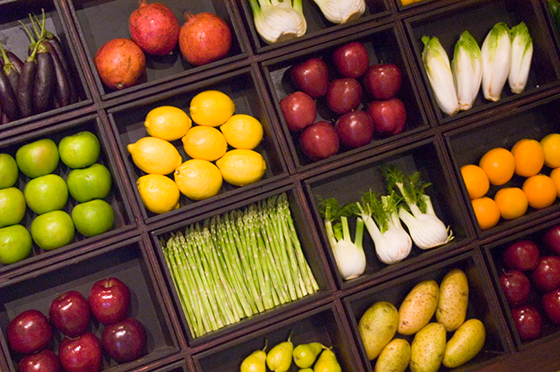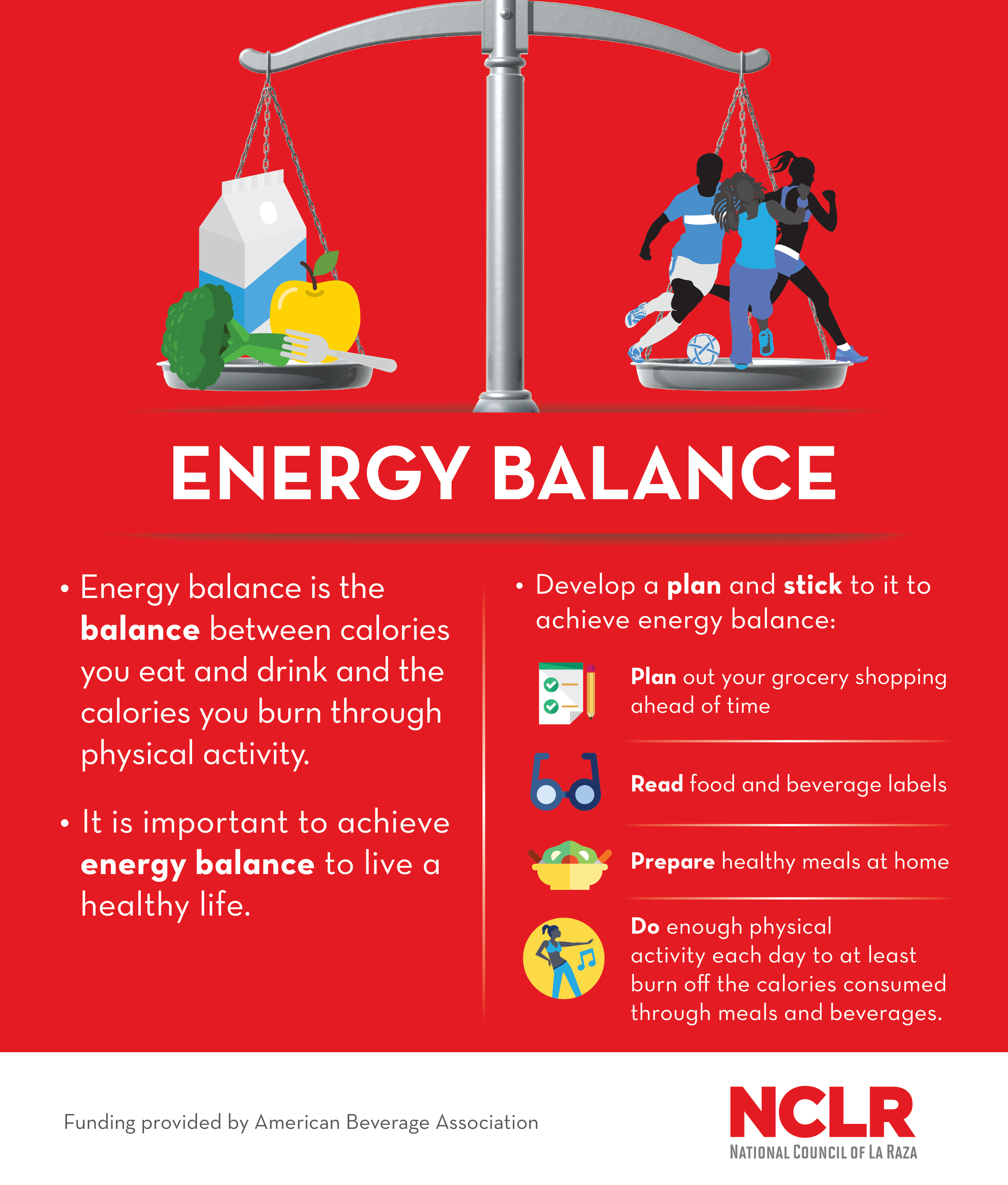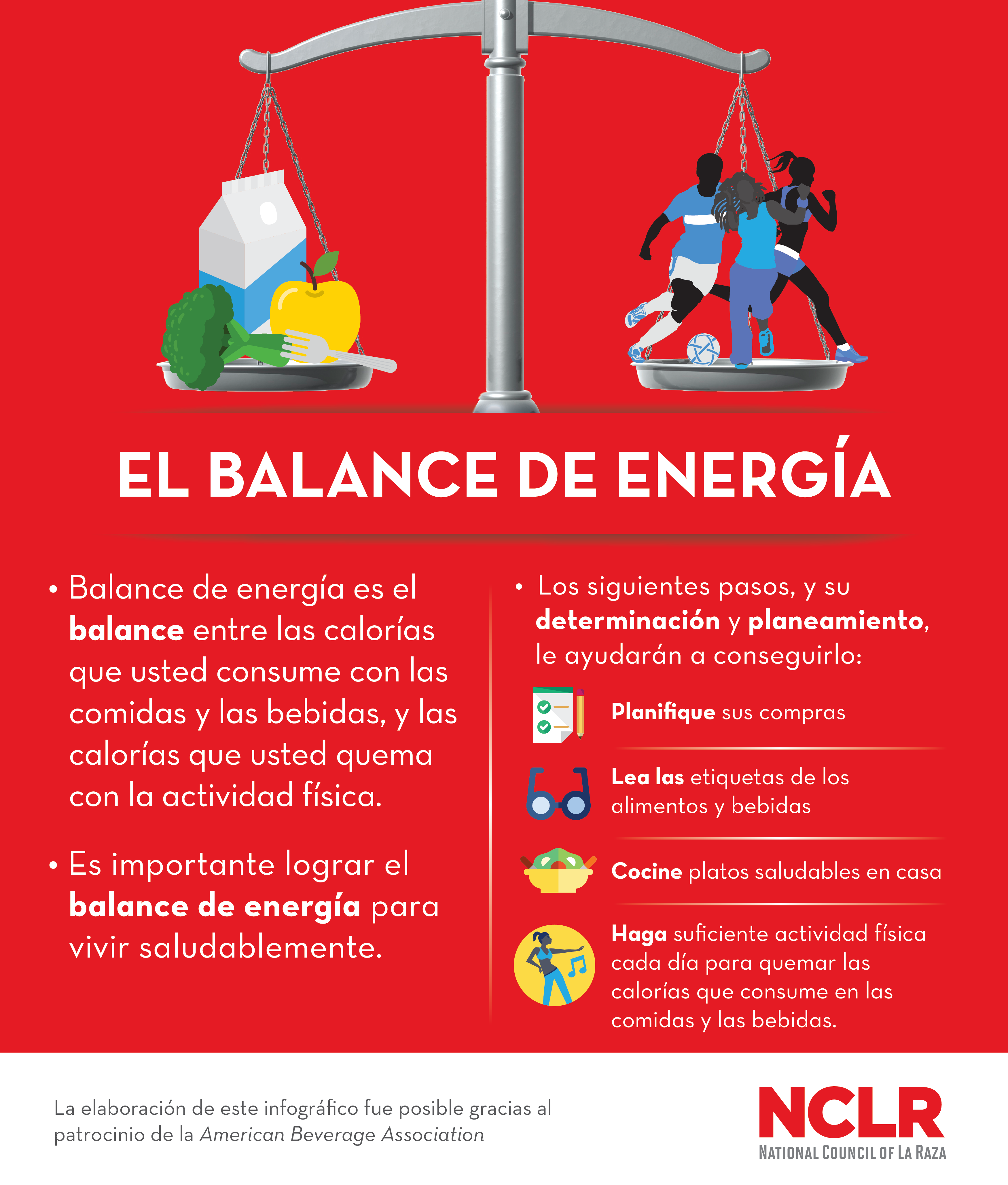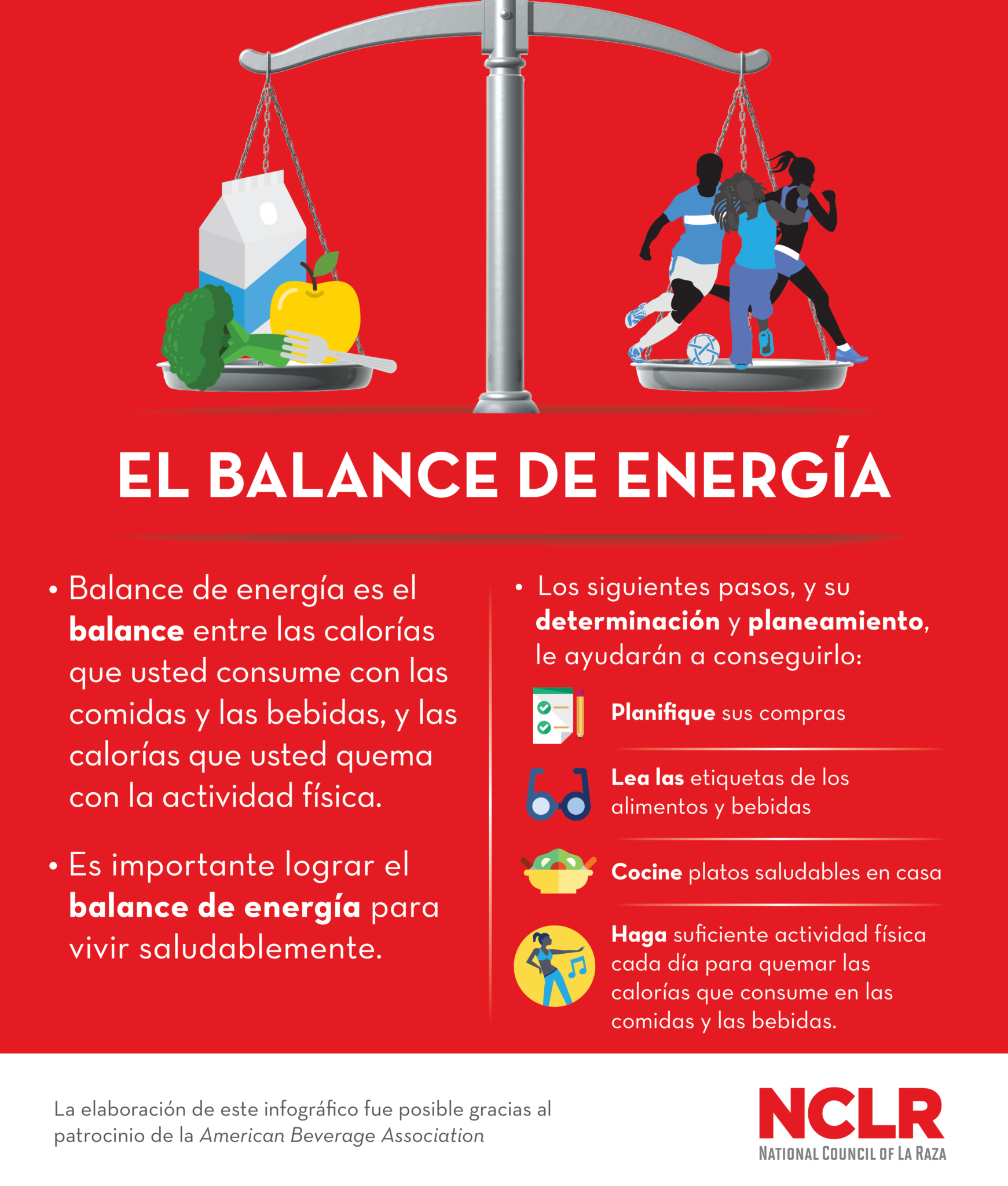Energy Balance Is Vital for Maintaining a Healthy Weight
By Alejandra Gepp, Associate Director, Institute for Hispanic Health, NCLR

Most of us like to eat and have a hard time doing physical activity. However, it is common knowledge that if we eat more calories than our bodies need, then we will gain weight over time. A healthy weight is important for better overall health, preventing and controlling conditions such as high blood pressure, type 2 diabetes, and sleep apnea, as well as chronic diseases such as heart disease, and certain types of cancer. In addition, a healthy weight has the added bonus of giving us more energy and making us feel better.
Keep up with the latest from UnidosUS
Sign up for the weekly UnidosUS Action Network newsletter delivered every Thursday.
Energy balance is critical to weight control and management. When the amount of calories we get from food and drink equals our bodies’ energy needs, we have reached “energy balance.” It is easy to think of energy balance as energy “IN” equals energy “OUT”.
What does this mean? Maintaining the same amount of energy that goes into our bodies and that goes out when our bodies use it allows us to maintain a healthy weight. Weight gain results when there is more energy coming into our bodies through the calories in our food and drink than is going out of our bodies when we are active. Eating just 150 calories more a day than we burn can lead to an extra five pounds over six months. That’s a gain of 10 pounds a year. Conversely, more energy going out than in results in weight loss.

Energy needs vary with our age and weight, as well as with our level of physical activity. In addition, how efficiently our bodies use—or burn—energy differs from person to person. This may be due to differences in our metabolisms—the way our bodies change food and oxygen into energy—and efficiency of movement. The body’s metabolism slows down with age, which means that we may need fewer calories and more physical activity to reach energy balance.
Lastly, we may be tempted to look at quick ways to regain energy balance without doing physical activity. Evidence shows that fad diets (e.g., protein diet, liquid diet, cabbage diets, and others) are not effective in sustaining weight loss in the long run. When we feel hungry and deprived of the food we want, we tend to gain the weight back. Equally important, fad diets deprive us of important nutrients for healthy living.
What is the solution then? Eating small portions of food rich in nutrients such as grains, complex carbohydrates, fruits, and vegetables, and doing at least 150 minutes of moderate-intensity aerobic physical activity (two hours and 30 minutes) each week will put us on the right path to healthy living. We should not think of physical activity as finding time to go to the gym every day, instead, it should be integrated in our daily lives; for example, taking the stairs instead of the elevator, walking the dog an extra block, joining our compadres for a Zumba class or a brisk walk. Take a look at an Estimated Calorie Requirement chart for information about energy needs by gender and age and learn about additional benefits of physical activity, such as mental health. Additionally, seeking advice from a health care provider can help you determine what’s right for you.

The following tips and steps can help all of us achieve energy balance and feel better:
- Set realistic goals for ourselves.
- Learn to read food and beverage labels.
- Be aware of the number of portions and calories in food and drinks.
- Plan meals and food shopping trips to the supermarket.
- Cook healthy meals at home.
- Control portions.
- Move every day.
- Aim for better sleep in order to improve your mood
And remember, Thanksgiving has just passed, and Christmas and other holidays are around the corner. If you overate like I did, then invite the whole family for a very long walk. Our goal is to burn those extra calories we consumed during our celebrations!
